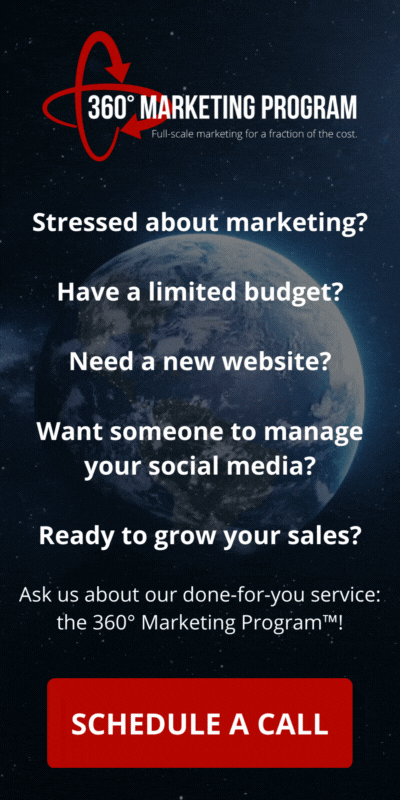If you’ve ever had an interest in becoming a consultant of any kind, then you’ve come to a great place to help you get started!
In this article, we’re going to break down different aspects of your new consulting business that you’ll need to take into consideration and take action on before you make your first dollar…
…or rather, your first few thousand dollars!
Know What You Want To Earn
If you’re like most people, you dream of earning a six-figure salary without having to work 80-hour weeks.
This is good news if you’re an expert at something, because you’ve already put in that time simply through your cumulative experience. The entire point of hiring a consultant is to do things faster and more efficiently without spending the same amount of time to learn.
This is why college is so expensive, in essence; the infrastructure designed to optimize students’ learning experience – modern amentities included – costs millions and millions of dollars, and the students will pay for it (usually with Federal student loans, of course).
Save money. Grow online.
Learn what our 360° Marketing Program can do for your company to help you grow your business online!
As a consultant, you’re able to earn as much or more than a tenured university professor with his or her doctoral degree, and you’ll have a better schedule, too!
So, choose an amount that you want to earn each year and stick to it. For starters, make it something believable to you but just out of your comfort zone (for instance, if you can believe in making $60,000 easily, set your income goal to $75,000).
Then break down your desired income into monthly, weekly, and daily amounts (e.g., $75,000 per year would be $6,250 each month, $1,442 per week, or $205 a day).
That daily amount doesn’t seem so unreasonable, does it?
Setting Up Your Brand
As a consultant, you have one of two options moving forward:
Create a business centered around you (personal branding) or work toward building a consulting agency.
The principles listed here will be centered around a personal brand (think Tony Robbins), but the same can be applied to a consultancy as well.
Now, you’re going to need several things to set up your online presence, so pay close attention:
Website: You’re definitely going to need your own website. You can work with us to set it up for you, of course, but you can always learn how to create your own website and set everything up yourself.
Logo: Most consultants create their personal brand logo using their name, and design it to suit their style and the image they want to portray to clients.
Profile Photo: You’re going to need a professional headshot – or even better, a mid-torso shot – of you dressed in professional attire. Image is everything here; your first impression is the image of you that they have in their mind. Once they meet you via Zoom, Skype, or in person, it’s honestly irrelevant at that point because they’re interested in what you have to offer, not how you showed up. Of course, it doesn’t hurt to keep up appearances, either.
Social Media Profiles: Set up a Facebook Page, a Facebook Group, a personal LinkedIn account, a LinkedIn Company Page, an Instagram, a Twitter account, and a Google My Business account (optional unless you’re registering a consulting agency in your state). These are the essential social platforms you’re going to need to succeed online as a consultant.
Find Your People
Your audience, tribe, people, homies, family, or whatever name you choose to give to the people who will ultimately be your target audience is an absolute must for anyone trying to built a consulting business.
Remember, you’re starting this with you from the start, so you need to find the people who will not only like you for you, but also need your expertise.
You can do this by scouring LinkedIn and Facebook groups for like-minded individuals to network with.
Get Good At Creating Content
One of the main things you’re going to have to do if you want to build up your clientele is to show that you’re actually an expert at what you’re consulting.
Oh there’s actually work involved? Yep. Hate to burst your bubble, but if was easy everyone would do this…
…trust me.
Blogging: You’re going to want to make sure that you turn into a grammar Nazi of sorts. Writing blog content is the best way to build up your credibility as a subject matter expert. You can do a number of things with blog content once it’s written and published, such as creating videos and extrapolating bits and pieces for social media graphics to spark intrigue.
Vlogging: This area of content creation is particularly interesting, as you can get creative with it. YouTube is obviously the main place you’ll want to host your videos, but you can also use TikTok as another place to draw in potential clients.
Podcasting: Believe it or not, video didn’t kill the radio star – it just changed the medium. Podcasts are one of the best ways to draw in business professionals and other potential leads to your new consulting business by showing that you know what you’re doing. Starting your own podcast isn’t difficult, you just have to stay committed.
Write A Book On Your Expertise
Every successful consultant has published at least one book.
The point of this book is not to make sales – rather, it’s basically your resume and what would probably have been a doctoral dissertation (and maybe you already have this, which is great).
Your book should be around 10,000 to 20,000 words with 20-25 chapters. We’re talking the kind of book that would appear to be done by a New York publishing house, without the upfront costs; you can publish your book on Amazon Kindle and they’ll take care of the physical copies if ordered. All you have to do is make sure it’s formatted for Kindle and physical distribution.
Building Your Sales Skills
Noone naturally likes to sell, period. Except salesmen, who if asked would most likely want to be doing anything other than selling another person’s product or service for a commission.
You know who loves to sell? People who learn how to love it – and you have to become that person.
We all have this bleak image of sleezy used car salesmen who try to cheat customers out of a deal. It used to be that way, and there probably are still sales people like that.
However, these days selling has changed in a dramatic way: people can find information with a few taps of their cell phones and debunk lies and misinformation, so lying to customers isn’t really that effective anymore.
So, you don’t have to be afraid to sell – in fact, if you show that you truly have a passion for helping your clients and take a personal interest in their dilemmas, whatever they may be, then you’ll find that sales is simply a conversation between you and the client.
Develop A Standard Operation Procedure (SOP)
The acronym SOP is used heavily in the U.S. Military, and basically means the regular processes that happen in a situation.
For the civilian sector, and you specifically as a consultant, your SOP includes onboarding clients, collecting payments, gathering information, performing the necessary work to satisfy the client’s needs, and finally offboarding them before moving on to a new client.
This part is a little more boring and dry, but once you start working on your SOP you’ll see where the money comes into play, and that’s always exciting!
Maintaining Integrity
Being a consultant isn’t just doling out advice to whoever needs it – that’s what therapists are for.
Rather, consultants help their clients via meetings, finding new perspectives to issues (which is kind of like a therapist actually), and actually helping with the workload that the client needs help with (depending on the scope of work you’ve predetermined).
It would be nice if you could just talk to people and get paid for it as a consultant, but unless you get a doctorate in psychology, you’re probably not going very far with your own consulting practice that way.
So that being said, make sure that you actually are willing to do the necessary work involved as well as offering sound advice to your clients.
Don’t lie, always provide quality answers, and never, ever say or do anything that will hurt your client.
Collecting Payment
Determining your payment structure strongly depends on how you want to be paid.
If you only accepted cash, for instance (which is VERY shady and highly discouraged) you’d probably want it all up front. Since we live in an age of electronic transactions, it’s recommended that this be your first requirement for consulting services.
A second option is to split the payments based on milestones. Cassus Media, for instance, offers 100% up front, 50% down and 50% at completion of a project, or if the client requests it we will generate a four-step milestone outline and bill the client each time a milestone is completed.
If you don’t mind paying transaction fees, you can take payment via PayPal, Venmo, Square, Stripe, or any other electronic payment solutions company. If you need to keep as much money as you can and are willing to wait a week or two, ask your client to send you a physical check in the mail.
Never, ever ask for cash. EVER.
That being said, once a project is completed and your consultant-client relationship comes to a close, make sure to get a testimonial and display it for all to see. No matter where you put it – Facebook pages, your website, etc. – testimonials are the cherry on top to a job well done and offer more credibility than any past experience you claim to have.


